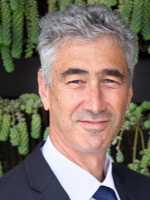Author Interviews, Heart Disease, Lipids / 01.04.2020
Monoclonal Antibody Evinacumab is a Major Benefit to Patients with Homozygous Familial Hypercholesterolemia
MedicalResearch.com Interview with:
Professor F. J. Raal, FRCP, FCP(SA), Cert Endo, MMED, PhD
Director, Carbohydrate & Lipid Metabolism Research Unit
Professor & Head, Division of Endocrinology & Metabolism,
Faculty of Health Sciences, University of the Witwatersrand
MedicalResearch.com: What is the background for this study? How does Evinacumab differ from the three drugs used in triple therapy for this severe form of hypercholesterolemia?
Response: Despite available lipid lowering therapies, the vast majority of patients with homozygous familial hypercholesterolemia are unable to achieve desirable LDL-cholesterol levels and remain at high risk for premature atherosclerotic cardiovascular disease.
Unlike statins and PCSK9-inhibitors which act mainly by upregulating LDL receptor activity on the cell surface, evinacumab, a monoclonal antibody inhibitor of ANGPTL3, acts independent of the LDL receptor.
(more…)




